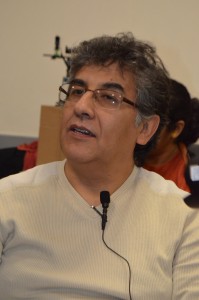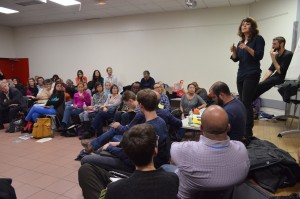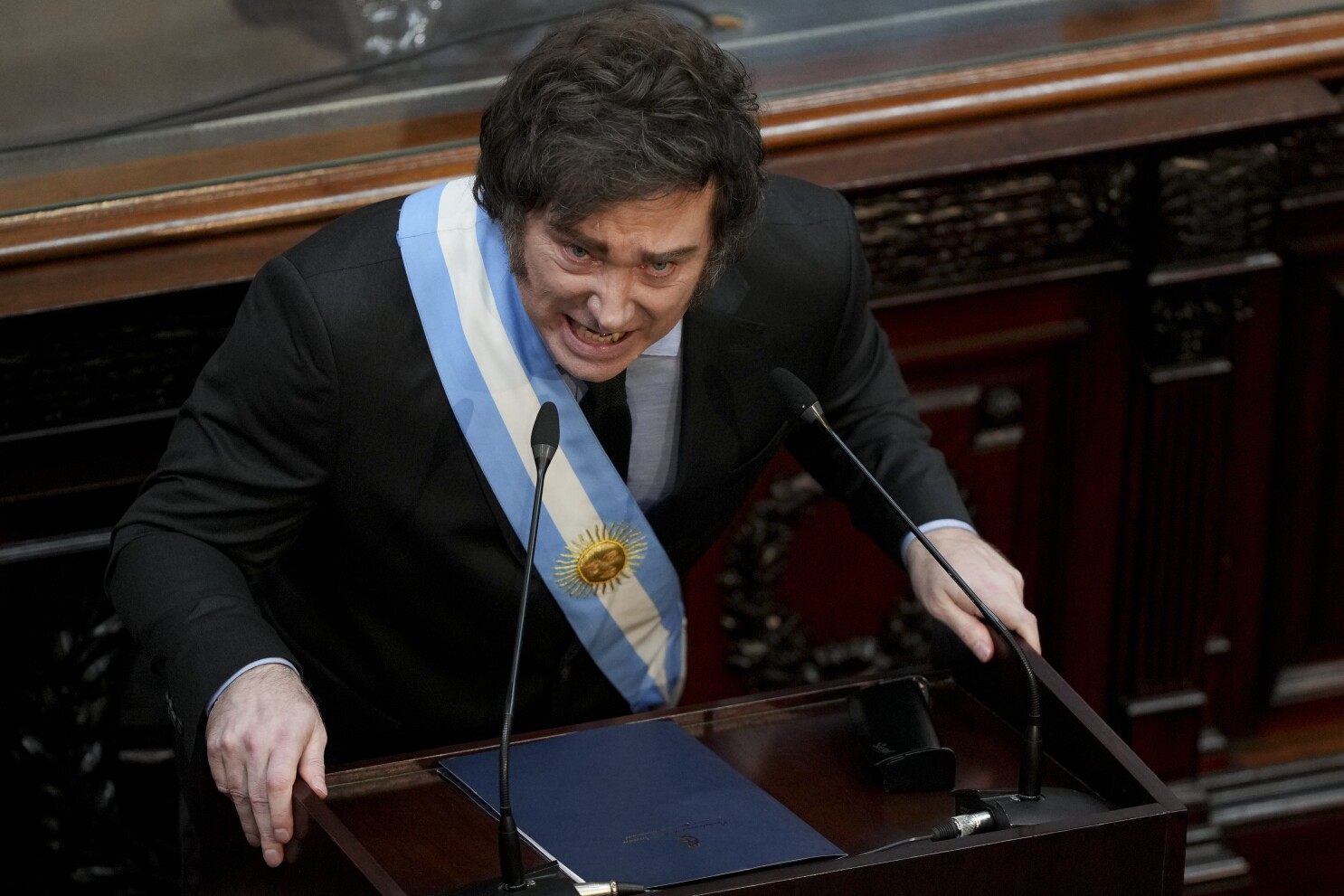 The Paris agreement, according to Pablo Solón, a veteran of climate negotiations, “will be an agreement that will burn up the planet.”
The Paris agreement, according to Pablo Solón, a veteran of climate negotiations, “will be an agreement that will burn up the planet.”
The result of the COP21 (Twenty-first United Nations Climate Change Conference), which began on Monday, Nov. 30 and will end on Dec. 11, “can already be announced, because we already know what it will be,” he said in an interview with the Americas Program.
“Here in Paris, the reduction of greenhouse gas emissions is not being negiotiated under criteria of climate justice or climate science. All that’s being done is taking note of the promises of each country and adding them up,” said the former Bolivian ambassador.
Nearly all of the world’s countries– about 186 to date– have promised to reduce emissions. The official report of these promises, when seen as a global plan, constitutes an announcement of disaster.
The challenge set in 2009 in Copenhagen was to avoid exceeding 2 degrees Celsius of global warming. The official report would mean an increase in global temperature of between 2.7 and 3.9 degrees Celsius. In other words, actual warming could reach double of what was established as the maximum limit.
“And 2 degrees Celsius was the roof of the roof, because many countries have warned that even with a 1.5 degree warming their countries could disappear, especially many island nations. With the Paris agreement, warming is going to reach more than double that figure.”
“But there is another report that says: careful, it could be even 5 degrees Celsius. Many think that we are negotiating contributions to emissions reductions, but that is not the case. That is not being negotiated. This is a farce, a scam. I can’t think of another way to say it.”
The Paris agreement, which will be drafted during the climate conference, is just the Cancún agreement under another name, says Solón, in reference to the COP16, which took place in that Carribean city. That agreement was based on voluntary promises to reduce greenhouse gas emissions.
The agreement that could be announced after the second and final week of the COP21 has the same structure–the only difference is that the voluntary national emissions reductions are now called Intended National Determined Contributions (INDC). The structure of voluntary promises not forming part of a binding treaty is the same.
There are governments that want to pass off this criminal accord as if it were a first step, because it will be an achievement in itself for all countries come to an agreement. But that is not the objective of the summit. The objective is to save the planet by controlling global warming, something that this accord is not going to achieve.
What is uncertain is whether we will move forward or backward. There are some who say, yes, it is insufficient, but it is a step forward. However, the numbers disprove such claims. Five years ago, in Cancún, the goal was to agree on measures to reduce annual emissions of CO2 equivalent (including methane and nitrous oxide) to 44 gigatonnes by 2020.
“However, with these promises, all they will actually be able to achieve is 56 gt. The gap will be 12 gt. If this agreement reduced the gap, I would say, good, even if it is a little bit, we are advancing. But the reality is that by 2030, emissions should decrease to 35 gt, and with the known INDC and the UN report they are going to be around 60 gt, with a gap of 25 gt,” said Solón.
“I don’t understand how people can call this ‘a step forward,’ and say that ‘we are advancing.’ I don’t understand. This is clearly a step backwards. It’s a scam.”
In the field of civil society, there is no doubt that there are advances, Solón pointed out. For example, the demand to refrain from extracting petroleum and the campaigns for disvestment in fossil fuels are better understood and defended every day.
“It has been gaining support and action, and that is positive. But in terms of the governments, it is as if they live on another planet, because there is not a single country that has made an official proposal that 80 % of known petroleum reserves need to be left underground; or that there at least need to be limits on extraction.”
_____________________________________________________
‘Not a single country has made an official proposal to establish limits on fossil fuel extraction.’
_____________________________________________________
The COP is a summit of schizophrenic governments because they say they want to reduce emissions but they don’t mention the source of emissions–which is fossil fuel extraction and deforestation. A coherent way to address this would be to establish a limit of extraction of fossil fuels and an immediate end to deforestation. If these two measures are not adopted, how are we going to reduce emissions? Magic? Impossible.”
At this point, climatic change no longer is an environmental problem, maintains Solón. It has become a crime. It is the crime of ecocide and genocide, because the governments are absolutely aware of the implications that these agreements have for humanity and for life on the planet. They can’t deny that they know. They will be responsible for millions of deaths, not only of humans but also of other species.
This needs to be denounced, we cannot fall back into the scam. Solón is in support of the initiative to organize an anti-COP next year, as Nimmo Bassey of the Coalition Climate 21 has proposed.
“What we need to do is to give up the illusion that something is happening in the COPs when nothing at all is happening, or worse still, what is happening is exactly the opposite of what the planet needs.”
“I think that the most important thing is to give up this illusion. The COP is like the Matrix movie, whose tagline was ‘a false reality to hide the truth.’ This is exactly what is going on in the COP: a false reality of negotiation to hide the truth that there is no will to resolve the climate crisis.
_____________________________________________________
The COP is like the Matrix-a false reality to hide the truth that there is no will to resolve the climate crisis.
_____________________________________________________
“People think that inside the summit, there is a negotiation to resolve the problem of climate change, and that is a lie. The fact is that there is no negotiation,” emphasizes Solón.
“Between the NGOs and other networks, as we can see, there are big differences: there are some people who say, enough, and there are some who say ‘something is something.’ We need to have a deeper discussion because that will determine how we are going to get out of these meetings. I’m afraid that by the end of COP21 we are going to have two types of declarations coming from different social organizations, some saying that, although this is insufficient, it is a first step, and others saying: stop kidding around.”
Organizing During a State of Emergency
 Juliette Rousseau, spokeswoman of the Coalition Climate 21, does not expect anything positive from the COP21. “The official summit does not interest me. My expectations are centered in the movement that we are constructing.”
Juliette Rousseau, spokeswoman of the Coalition Climate 21, does not expect anything positive from the COP21. “The official summit does not interest me. My expectations are centered in the movement that we are constructing.”
Interviewed about the activities that the Coalition is organizing, Rousseau explained: “The COP is a closed space, for governments, prime ministers, presidents and people with credentials, and without a forum for the demands of the people, while outside our right to demonstrate has been denied. There is a state of emergency that has prohibited all of our mobilizations.”
However, on Nov. 29 the Coalition gathered 22,000 pairs of shoes in the Place de la Republique (including the shoes of Pope Francisco and Ban Ki-moon) to represent the 400,000 people who could have participated in the planned action for the eve of the first day of the COP21 that was cancelled by the government.
Also, 10,000 people held hands to for a human chain along the path of the prohibited route, without blocking automobile traffic. The gendarmie repressed hundreds of demonstrators anyway.
From now on, the coalition is focusing on the future, because “there is definitely a future” for the movement. For now, it is analyzing global strategies, campaigns and actions for the next year. Rousseau coordinated the roundtable debates at the first assembly of the Coalition with activists from all continents who had come to Paris to participate in climate actions.
“We still have a lot to discuss, because we intend to build a movement around the COP summits that won’t get exhausted. We still need to have meetings and discussions and do a lot of work, because there is an extreme degree of diversity in Coalition Climate 21 in terms of organizational structure, origins and political culture.
I hope that this movement succeeds in building itself up, connecting struggles and advancing internationally.”
_____________________________________________________
“We still have a lot to discuss, because we intend to build a movement around the COP summits that won’t get exhausted. But we still need to have more meetings and discussions and do a lot of work…”
_____________________________________________________
Meanwhile, the 130 organizations that make up the Coalition are preparing the scene of the Global Village of Alternatives to the climate crisis, that will open between on Dec. 5 or 6 in Montreuil, a suburb to the east of Paris. And between Dec. 7 and 11, the Climate Action Area will be established, “a space of connection, creativity and joyful resistance” in the Centquatre, a working-class district in the north of the city.
On Dec. 6, the Assembly of the Peoples on the Financing of the Social and Ecological Transition will take place, organized by a network of French organizations including Attac and Amis de la Terre and personalities like Susan George and Edgar Morin outside of the City council of Montreuil, during the Climate Forum and the Global Village. Five international spokespeople will announce the start of a campaign for taxes on financial transactions and against tax evasion to finance the energy transition. According to Tax Justice Network, there are $20 trillion hidden in tax havens.
Plans for the demonstration in the air that is scheduled for Dec. 12 (“The Last Word”), also prohibited by the French government, are still being discussed by the Coalition. The Coalition will examine the viability of possible formats for the demonstration in the next few days.
Sent from Paris. Alfredo Acedo is a journalist and director of communications of the UNORCA. He is a contributing writer to the Americas Program www.americas.org . This report is part of Americas Program’s COP Chronicles series.
Translated by Simon Schatzberg
For more information:
In Paris, Activists Challenge COP Inaction and Propose Solutions
https://www.americas.org/archives/17797
The Day Before COP21 in Paris
https://www.americas.org/archives/17669
Social Movements at Paris Climate Talks Refuse to be Collateral Damage to Security Measures
https://www.americas.org/archives/17642



